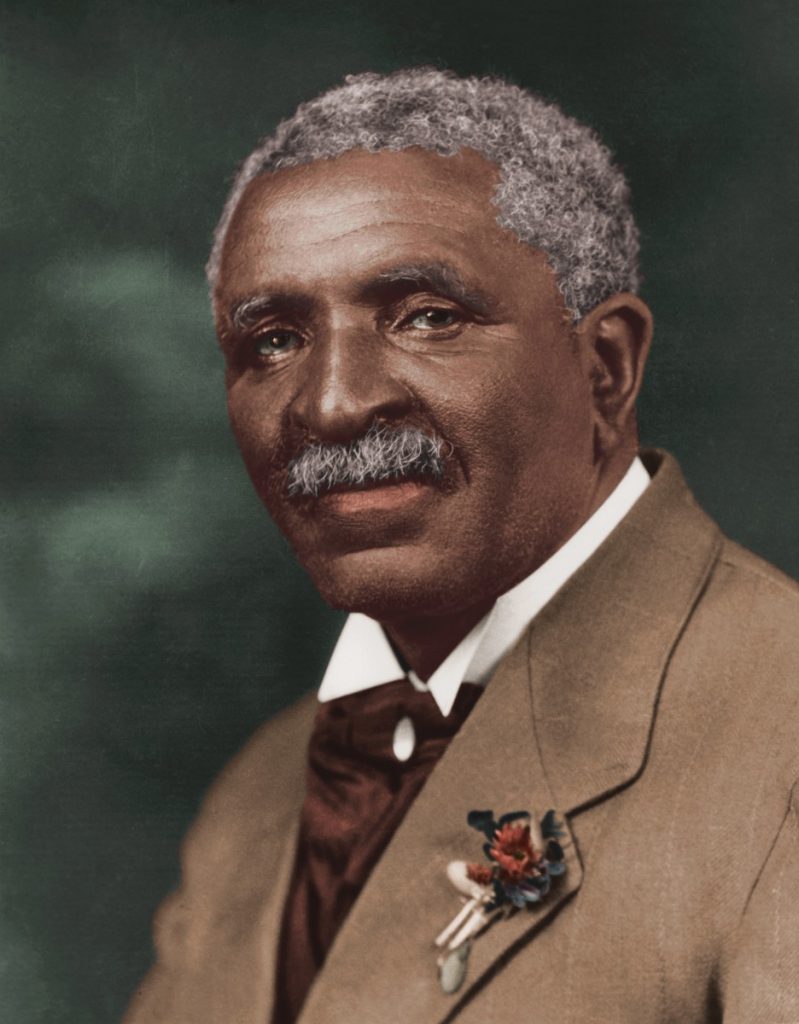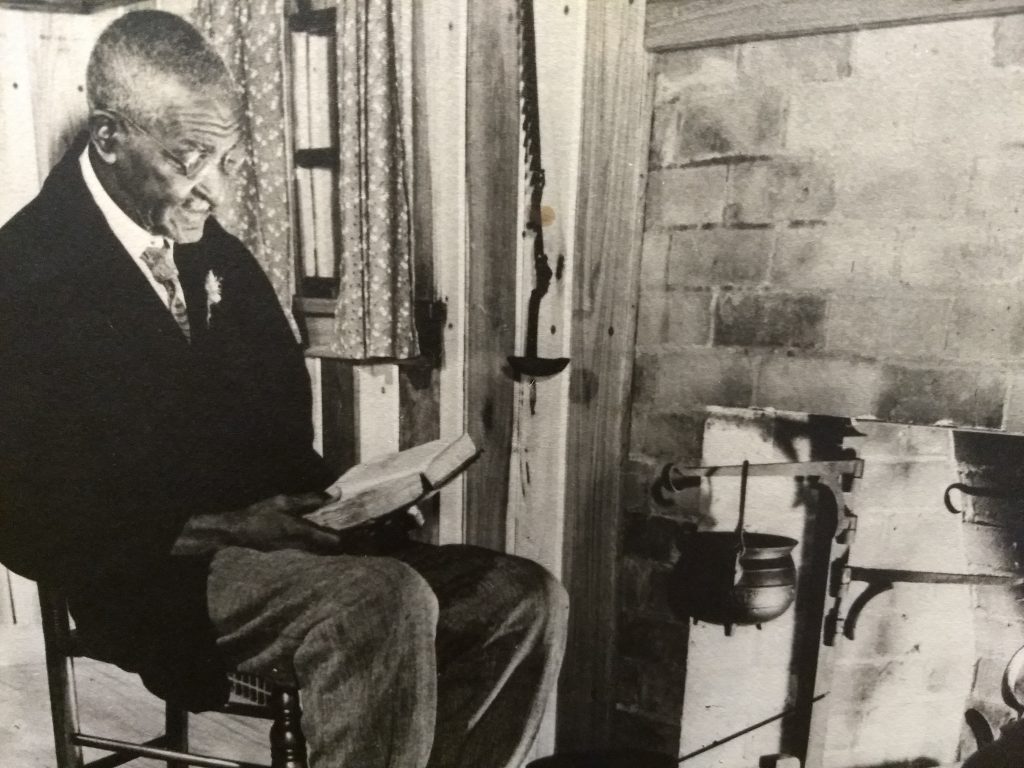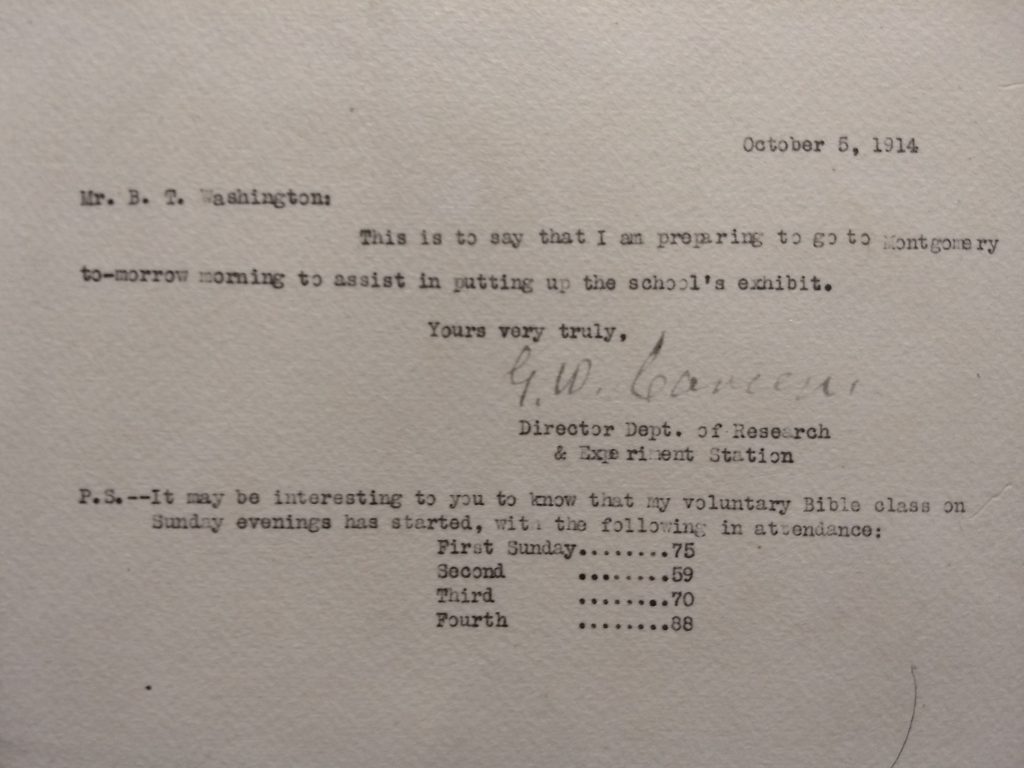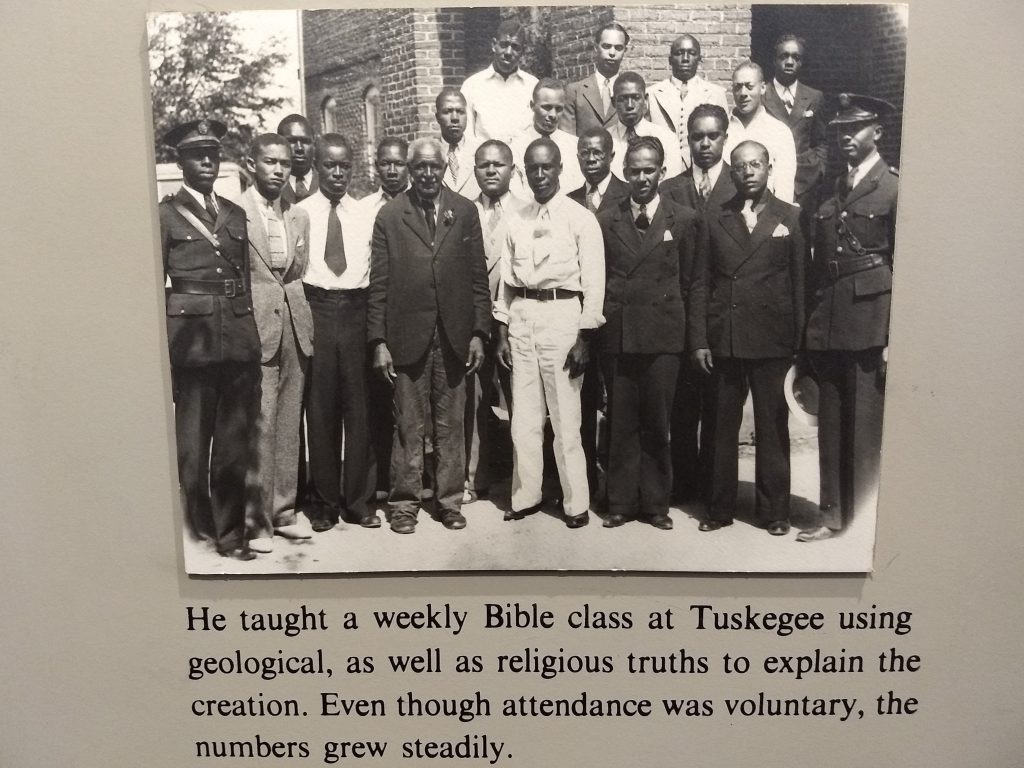
George Washington Carver is one of my heroes of the faith. I was first introduced to his life many years ago. He was raised in southwest Missouri about two hours from where I have lived since my childhood. The National Park Service oversees a 240 acre park with a museum along with the boyhood home of Carver. In 1943, it became a National Monument and is the first national monument dedicated to a black American and first to a non-president.
George was born into slavery about 1864 in Missouri. When George was only a week old, he, a sister, and his mother were kidnapped. Only his brother escaped being taken. His owner, Moses Carver hired a man to find the slaves, but only George was found and eventually returned.
In childhood, he learned only the basics of reading and writing. Black people were not allowed at the local school so George moved to Neosho, Missouri (10 miles away) and enrolled in a school for black children there. After learning what he could there he went to Fort Scott, Kansas to continue his education. He eventually earned a diploma in Minneapolis, Kansas.

After a series of events, he became the first black person to graduate from Iowa State University in Ames, Iowa. He also earned his master’s degree (1896) there and became a professor after graduation, the first black faculty member.
That same year, Booker T. Washington, president of Tuskegee University in Alabama, invited George to head the Agriculture Department. He was there for 47 years until his death in 1943.
Carver spent his life studying plants, rocks, and creation. He was known for his study of the peanut and the sweet potato. He received many accolades during his final years, but remained humble and serving throughout.
Qualities that made George such a great man.
Generous – he spent his time, energy, and personal resources in doing all he could to make others successful.

Forgiving – he forgave those who hurt him deeply. He was offended often throughout his young life. He never saw his mother and sister after they were kidnapped when he was a baby. He forgave those who did not allow him to study in their schools (elementary, high school, and college schools).
Grateful – he was grateful to those who helped him along life’s ways and maintained relationships with them.
Faithful – he was a faithful friend and faithful to his commitments, along with being faithful to God.
Diligent – he rose early and worked diligently throughout the days of his life at whatever task was necessary (farmed, ran a laundry business, cleaned houses for others, studied, taught, researched, etc.)
Loving – he expressed a loving spirit to all around him and demonstrated this with his giving spirit.
Resourceful – he practiced this throughout his life. When he arrived at Tuskegee Institute, he went to the school dump and gathered what he could to begin his research laboratory.
Boldness – he shared his faith in Christ whenever given a chance and always acknowledged his Christianity

Humble – he esteemed others more important than himself and especially honored women, children, the elderly, and any that were handicapped. Although he knew three presidents and other well known men of his time, he remained humble.
Gracious – he had a spirit about him that caused others to want to be with him and to like him. Click Here to read letters written to him from those whose lives he touched.
Encouraging – he loved teaching others and did what he could to motivate them to be the best they could be.

Frugal – at his death he donated his savings at the time of $60,000 (equivalent to over 1 million dollars in 2018) to the Carver Foundation.
Truthful – one of his well known sayings was “Be too brave to lie.”
Creative – One of his greatest attributes. As he studied life, he saw a multitude of ways that plants could be used for the betterment of mankind.
George was able to rise to such heights in his life because he was willing to forgive those who had shown such hatred to him and to other black people during that time in American history. He was able to forgive others because as a young boy he had found forgiveness for himself. Following is his testimony in his own words.
“I was just a mere boy when converted, hardly ten years old. There isn’t much of a story to it. God just came into my heart one afternoon while I was alone in the ‘loft’ of our big barn while I was shelling corn to carry to the mill to be ground into meal.
A dear little white boy, one of our neighbors, about my age came by one Saturday morning, and in talking and playing he told me he was going to Sunday school tomorrow morning. I was eager to know what a Sunday school was. He said they sang hymns and prayed. I asked him what prayer was and what they said. I do not remember what he said; only remember that as soon as he left I climbed up into the ‘loft,’ knelt down by the barrel of corn and prayed as best I could. I do not remember what I said. I only recall that I felt so good that I prayed several times before I quit.
My brother and myself were the only colored children in that neighborhood and of course, we could not go to church or Sunday school, or school of any kind.
That was my simple conversion, and I have tried to keep the faith.”
George wrote this testimony in a letter to Isabelle Coleman on July 24, 1931

We visited the George Washington Museum and Tuskegee Institute

1200 W Montgomery Rd, Tuskegee, Alabama 36088




